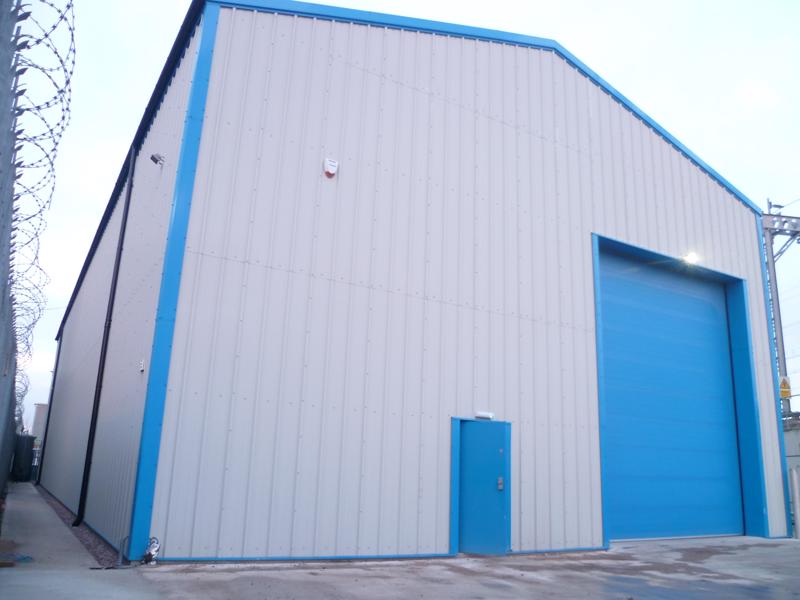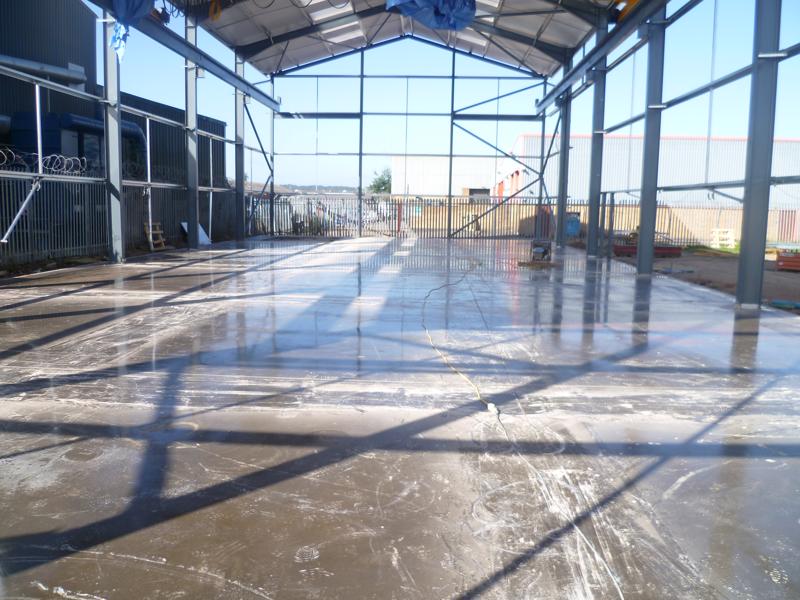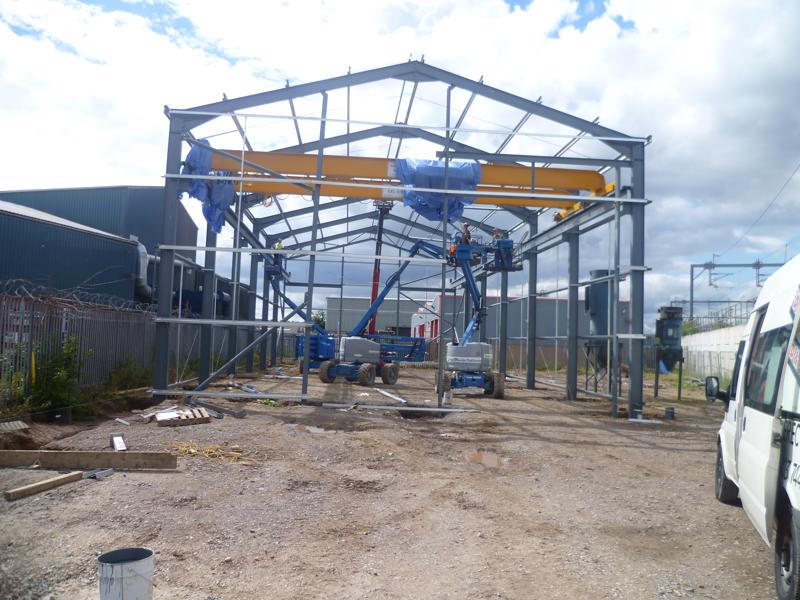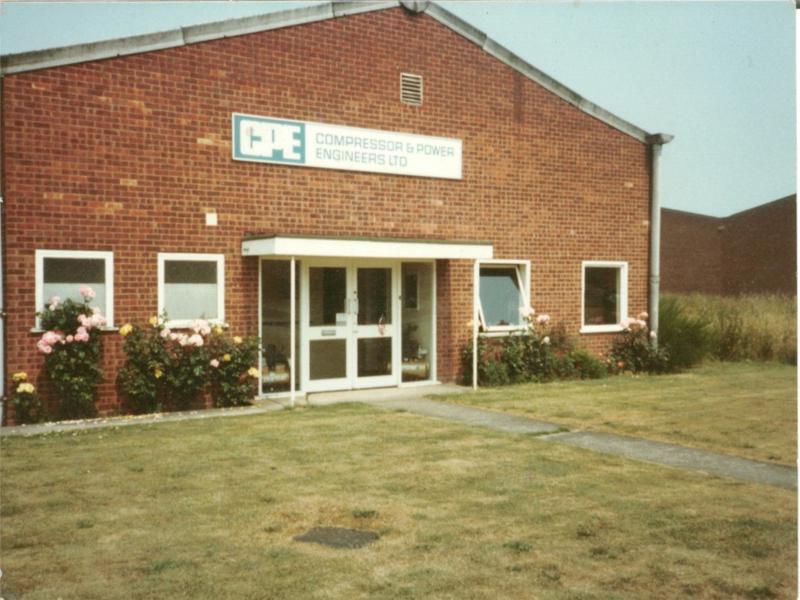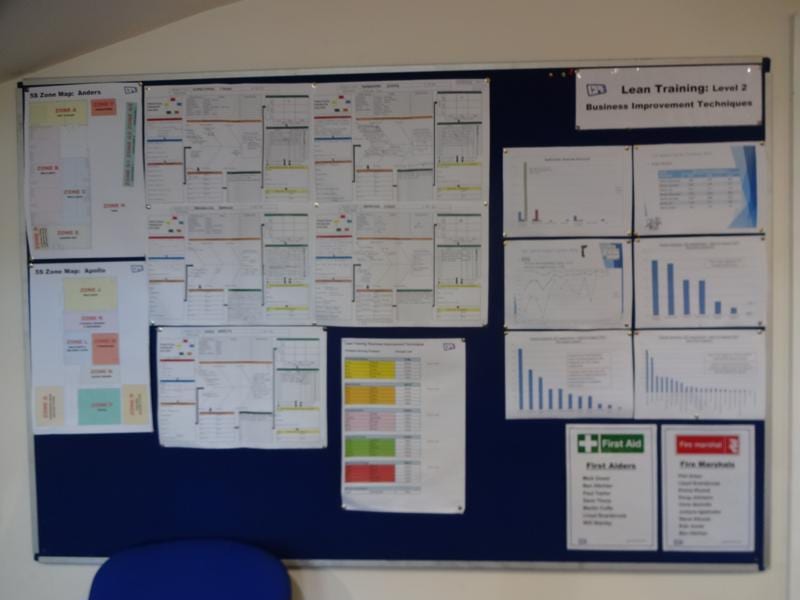The company background and history from the 19th century till present – over 100 years in business.
From Victorian times to WW2
At the turn of the 19th Century, John Newall (Jack Snr) founded an import export business, based in the centre of Manchester. The company, John Newall & Co imported products such as Cyprus lace and wine, Egyptian cotton, Russian oils and rugs. Many of the imported items were sold to retail outlets.
Jack Snr and wife Mary (aka Mimi) also ran a haberdashery shop in Broom Lane, Levenshulme, Manchester, where they sold many of the imported goods. In return, they exported high technology items such as machinery, pumping equipment, pipework, tractors, diesel engines and threshing machines.
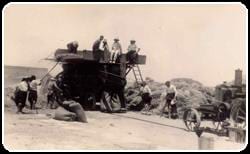

In 1900, Jack Jnr was born and was soon to become a central figure of the business.
At the age of 22, Jack Jnr spent much time in Cyprus and the Middle East, trading many goods and revolutionizing the lives of many. John exported many high tech products, including pioneering agricultural equipment to some countries. He is thought to have exported the first tractor from England to Cyprus, and irrigation equipment for growing oranges.
John spent much of his time on the island of Cyprus. In 1926, his childhood sweetheart Jessie travelled out alone to Egypt, carrying a large box containing a wedding cake made by her mother. John and Jessie met at Pot Said in Egypt where they were married by the British Consul.
After a honeymoon in Egypt they moved to Cyprus, first living in Nicosia, then settling in Famagusta. John exported a beautiful Belsize sports car which, according to a local doctor, was “quite a headturner”.
In 1928, tragedy hit the family with the death of Jack Jnr’s father, grandmother, and brother Norman, who died following an accident in his Salmson sports car. John returned to Manchester, sold the family home in Marshall Road, Levenshulme, and took his mother back to live with them in Cyprus.
In 1930, John H Newall was born, who would eventually be at the helm of CPE for many years.
Jack Jnr continued to grow the import export business, and won the contract to supply the entire diesel electric generating plant to Cyprus Mines Corporation in 1930s.
On July 1st 1939, business was booming and the Newall clan decided to take a holiday to visit relations in England. The family Jack Jr, Jessie, Joan, John H Newall and Joy all left their house, their dog and their possessions and embarked on a long trip back to England. They arrived at Avonmouth Dock where they collected a brand new Morris 10 motor car, which they planned to export on their return trip to Cyprus.
Unfortunately, 1939 was not a good year to travel. World War II broke out during their stay and they were unable to return to Cyprus. All their possessions, including the furniture, the grand piano, the Belsize car and kids toys were auctioned off and the import export business ceased to trade.
During the war years, Jack Jnr worked on Crossley 500HP marine diesel engines for minesweepers.
The Post War Era.
In the 1940s Jack Jnr set up Compressor & Power Engineers in the corner of a carpentry shop in Blackheath, Birmingham. CPE moved to Rea Street, Birmingham in 1950 then to West Bromwich in 1952 (see picture).
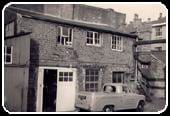
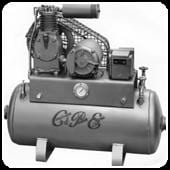
During the post war years CPE designed and built many innovative products. The first products were double stage compressed air filters, supplied to Rolls Royce and Lucas Gas Turbine Equipment. Other products included a pneumatic paint stirrer, which was still being used by Rolls Royce cars up until the 1990s and a range of air compressors.
In 1960, John H Newall, Ted Scanes and Jim Hartshorne all attended a night school class to learn how to weld. CPE began to manufacture their own filter housings and air receivers.
In 1970, CPE moved to their current premises in Tamworth. During the 1970s CPE mainly produced filters and driers for compressed air systems. Innovative designs included cyclonic separators (a technique since used by vacuum cleaner manufacturers) muliti stage filters and supremely reliable automatic drain valves. CPE also produced air receivers for their range of compressors and filter housings for their many designs of filters.
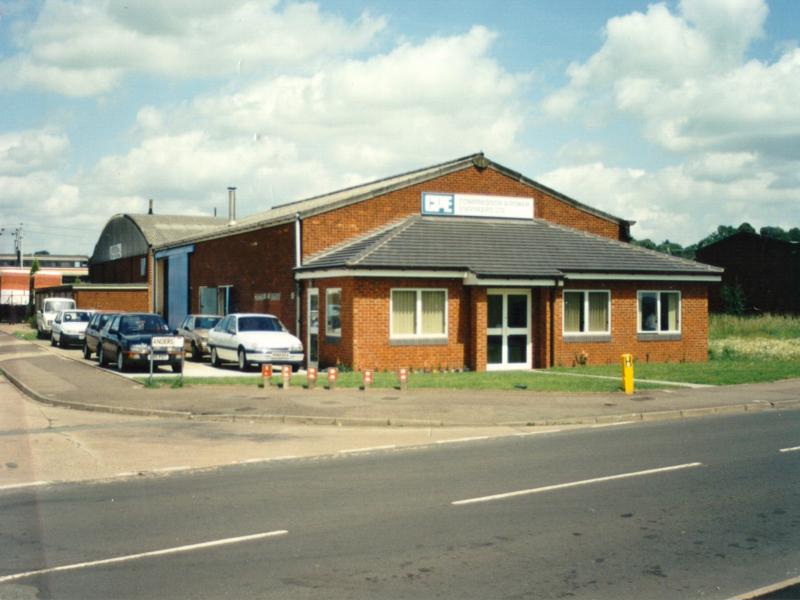
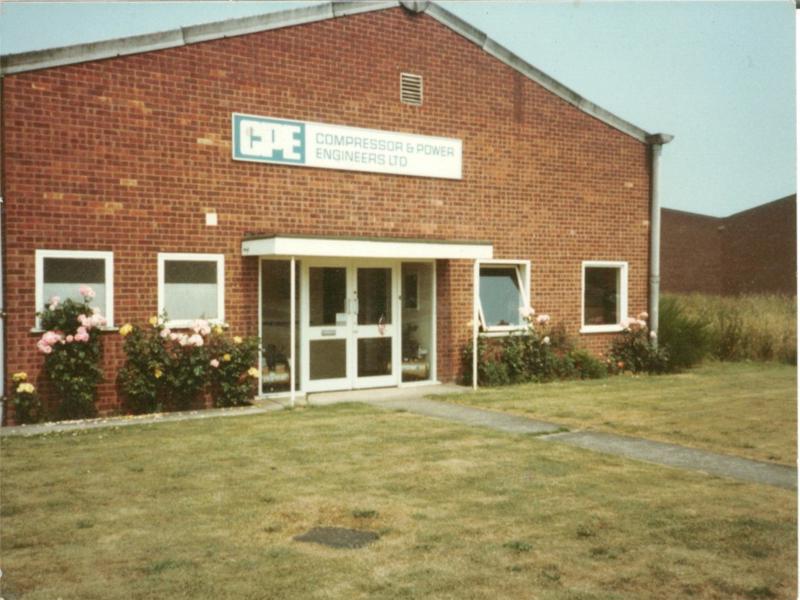
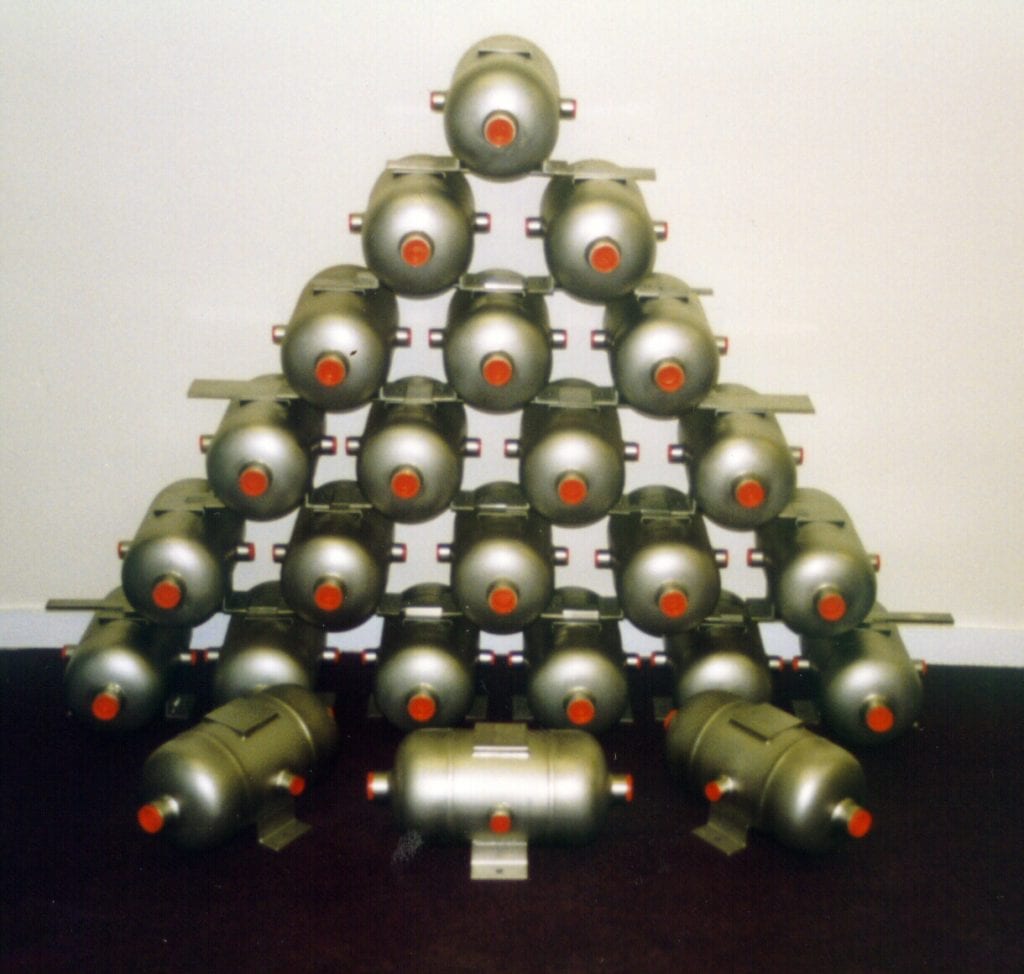
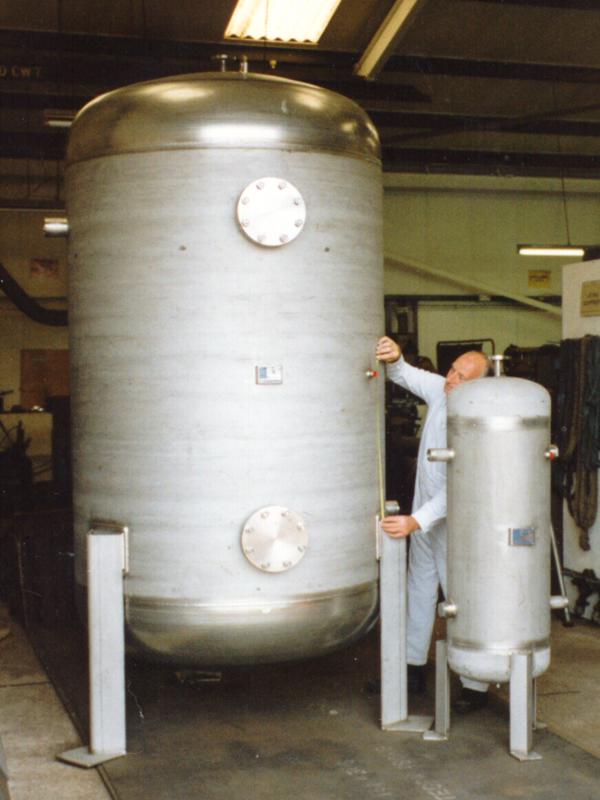
During the 1980s CPE became more involved in the manufacture of air receivers and over the next 10 years began to produce more specialised work such as stainless steel vessels and offshore specification vessels. CPE progressed into a producer of high quality pressure vessels and established its excellent reputation for quality pressure vessels.
In 1992, Stephen Newall joined the company to add a 4th generation to the family business.
The company has steadily grown in size with the building being expanded twice in 1990 and 2007.
In 2013, CPE opened Anders Works, a brand new purpose built pressure vessel shop
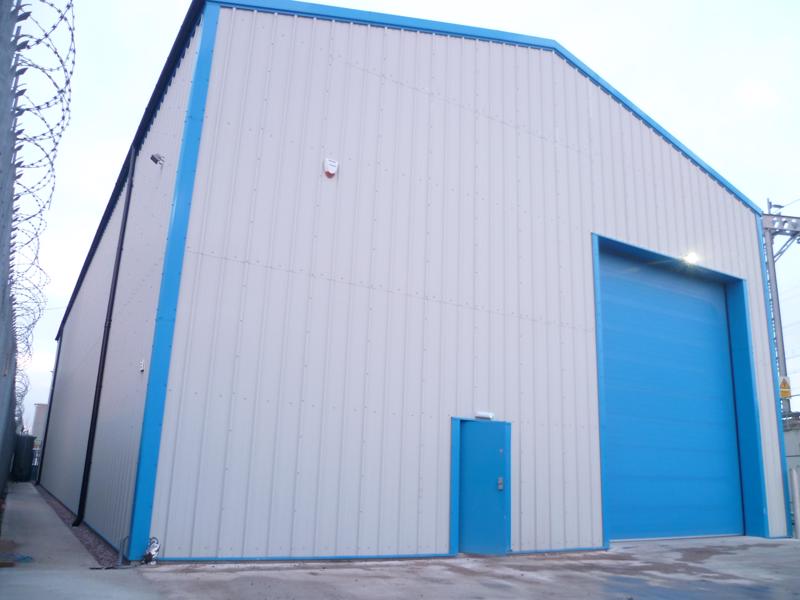
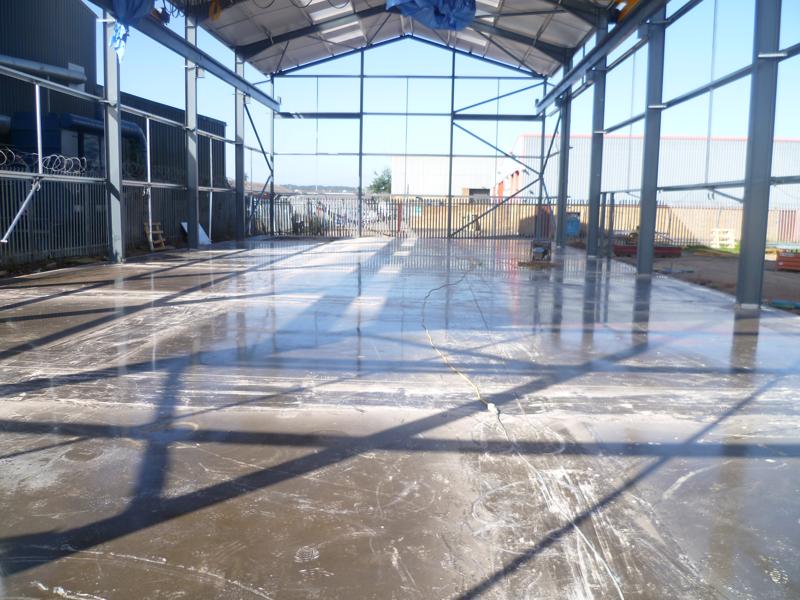
CPE now has excellent facilities for manufacture of vessels with a brand new stainless steel workshop and upgraded lifting capacity. With these new facilities, production is now more efficient than ever.
CPE still aims to offer the same levels of service, quality and value on which it has built such a wonderful reputation.
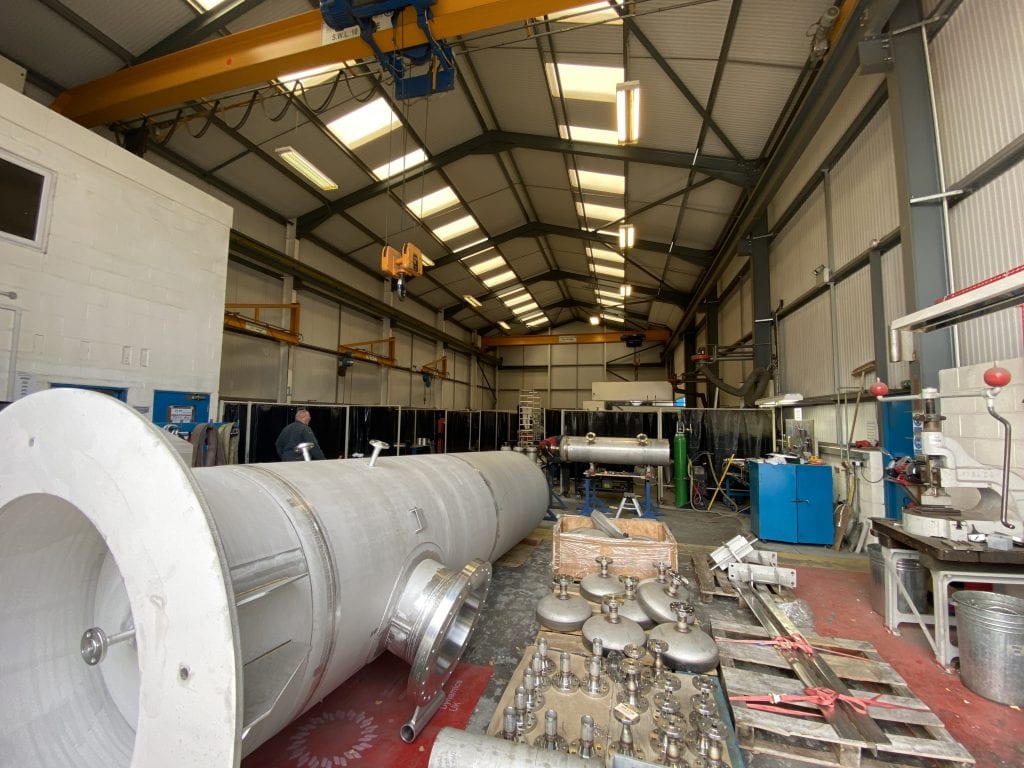
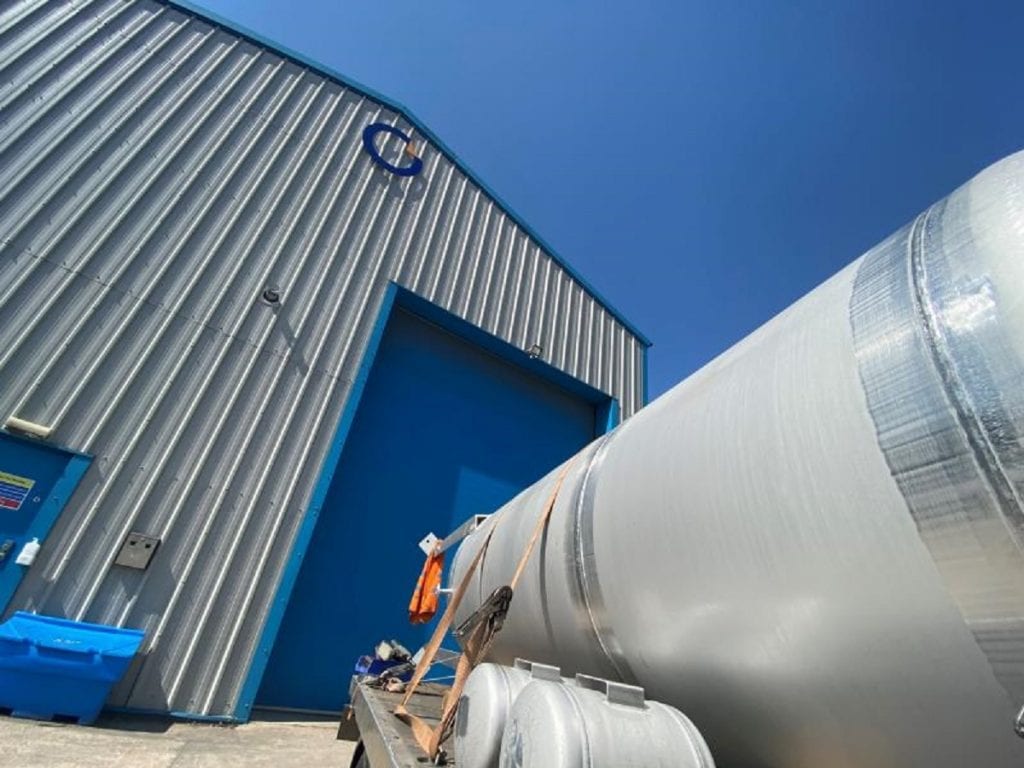
CPE are pleased to announce that we now have DNV shop approval.
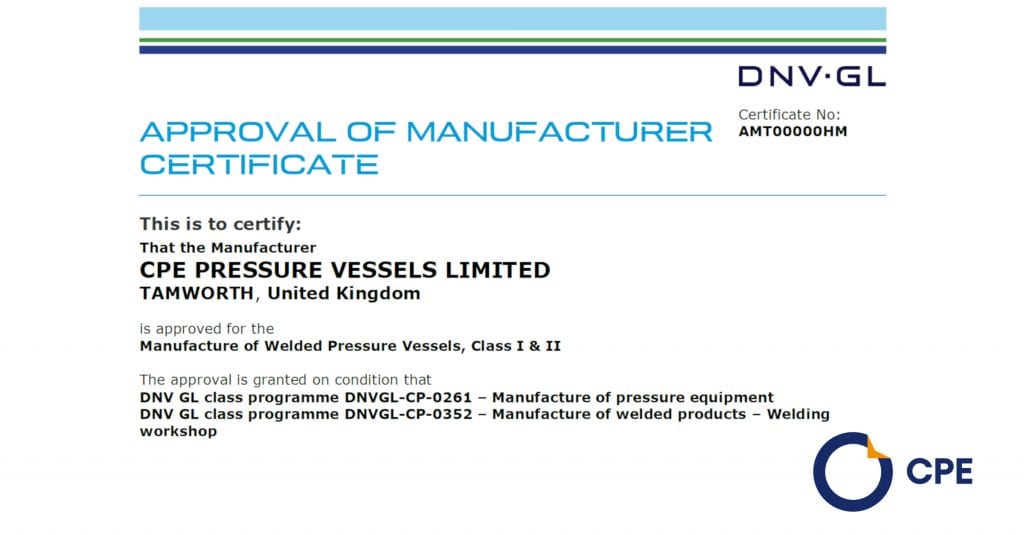
We now have DNV Approval of Manufacturer Certificate, this covers the Manufacture of pressure equipment and the manufacture of welded products in our welding workshop.
To find out more about our approvals and accreditation Click Here
50 Years ago today (31/05/19) CPE moved to Tamworth.

In 1970, CPE moved to their current premises in Tamworth. During the 1970s CPE mainly produced filters and driers for compressed air systems. Innovative designs included cyclonic separators (a technique since used by vacuum cleaner manufacturers) multi stage filters and supremely reliable automatic drain valves. CPE also produced air receivers for their range of compressors and filter housings for their many designs of filters.
A lot has changed and a lot of progress has been made in the last 50 years, but we have managed to retain the family feel and values that we had 50 years ago.
When we first moved in we had the single workshop and small offices, below are some photos showing our progression and growth:
For more information on our history see the following link: Company History
As part of an ambitious business change programme, CPE Pressure Vessels appointed In-Comm Training and Business Services to deliver a Level 2 Certificate in Business Improvement Techniques. The entire company workforce comprising both office and workshop teams completed the qualification over 18 months, with a 100% pass rate. Focusing on problem-solving techniques using real-world examples, the course has helped foster a culture of Lean Manufacturing and Continuous Improvement across all areas of the business.
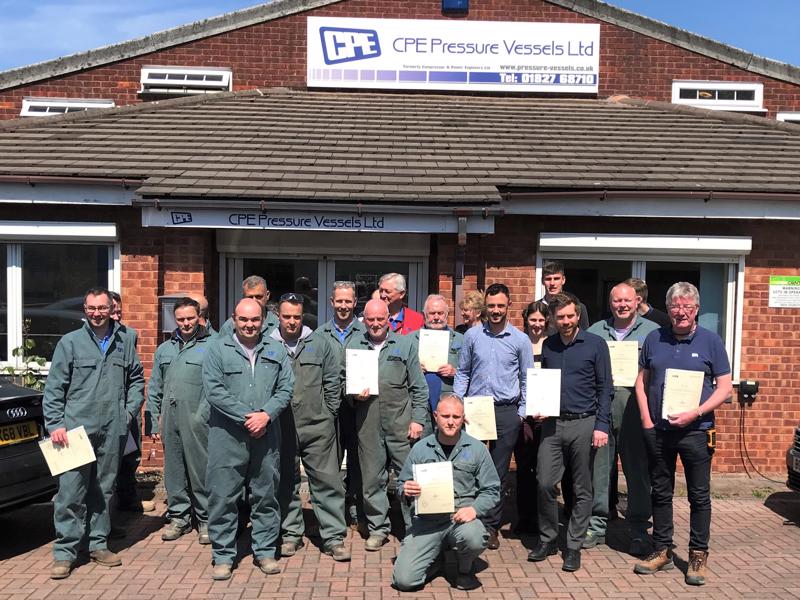
A wide range of subjects and business improvement techniques were covered over the 18 month course, to name a few of the modules: Complying with statutory regulations and organisational safety requirements, Contributing to effective team working, Contributing to the application of workplace organisation techniques, Contributing to the application of continuous improvement techniques (Kaizen), Contributing to the development of visual management systems and Contributing to the application of problem solving techniques.
We covered a wide range of topics and all learning was focused towards CPE and using real and live projects to apply the various techniques as we studied them. We found that we made some great progress in developing various areas of the business during the course and we have continued to grow and progress with this.
We are now running an internal version of the course that will ensure any new employees are at the same level and that we have consistent methods throughout the company.
CPE were registered 12/06/1948 and have been operating for 70 years.
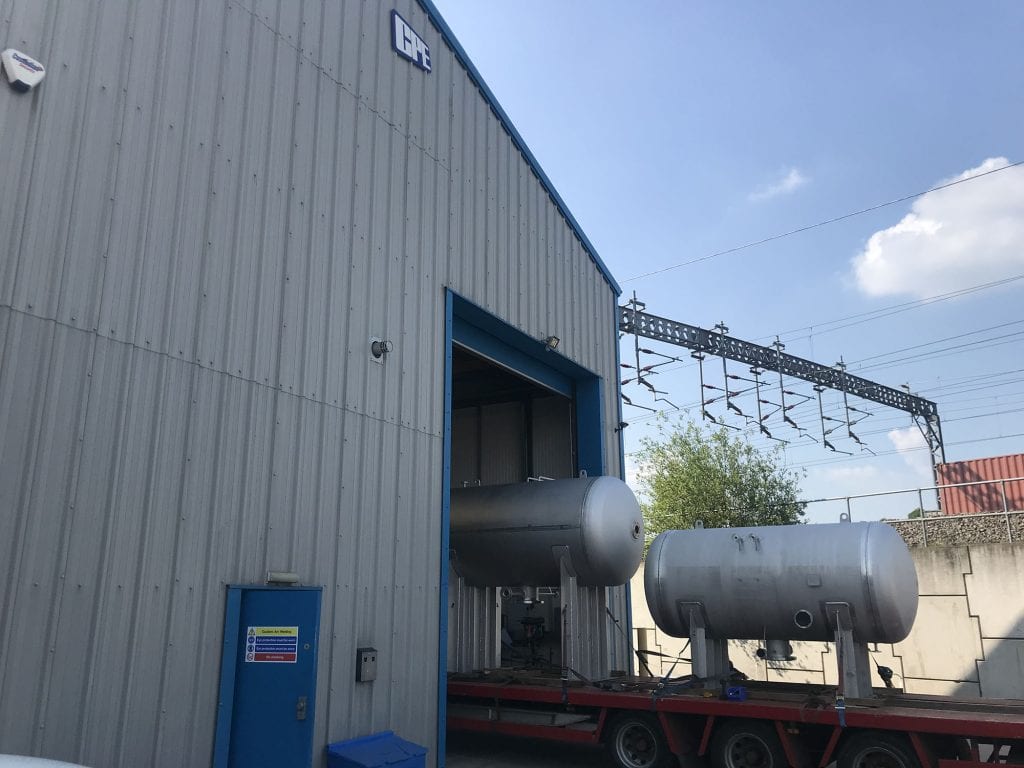
We look forward what the the future will bring.
For more information on our company history please click here.
CPE were recently featured in the latest Fit 4 Nuclear news letter.
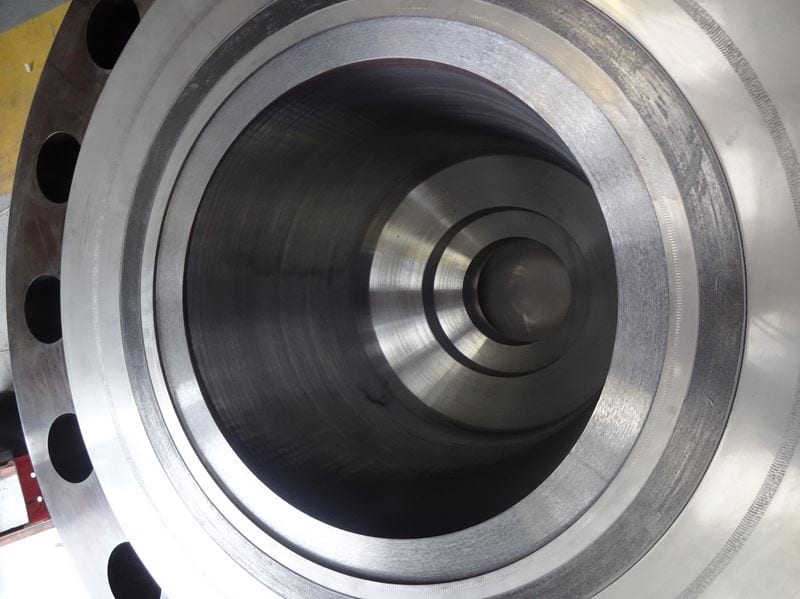
CPE were recently featured in the latest F4N news letter. Please see the article Linked below. The article is around an interview with Steve Newall covering the recent progression and development at CPE as part of the Fit 4 Nuclear Programme.
Click here to see new letter: Nuclear-AMRC-News-CPE-Pressure-Vessels-UK-Feature
CPE have recently won a project for the Johan Castberg Oil Field.
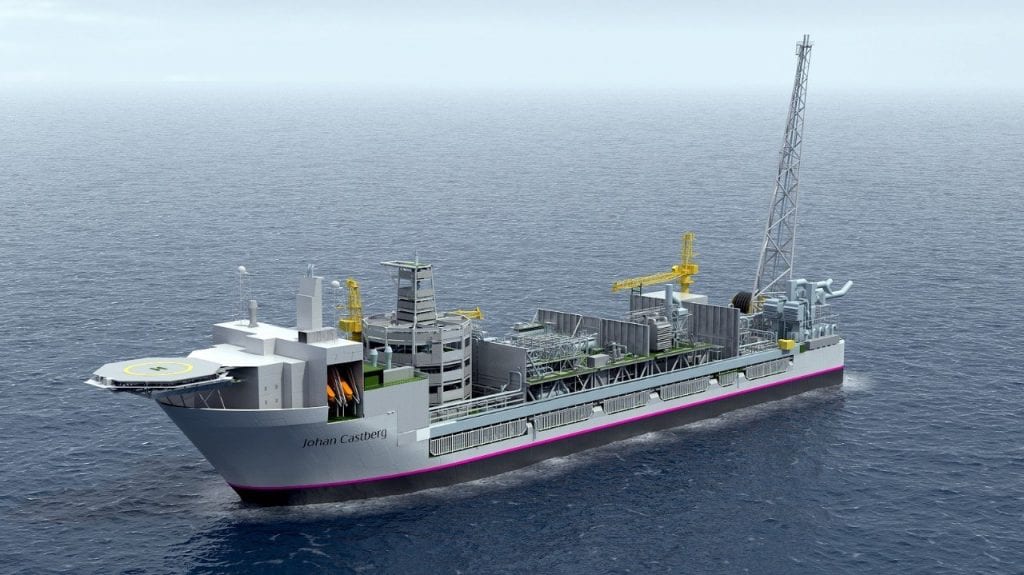
CPE have recently won a project for the Johan Castberg Oil Field. It’s great to see this project moving and we look forward to seeing similar projects in the future.
The field will be developed with an FPSO+ production vessel with additional sub-sea solutions, situated approximately 100 kilometres north of the Snøhvit-field in the Barents Sea first oil is expected in 2022 with an estimated 400 to 650 million barrels of oil.
For similar enquiries please contact us at: Sales@CPE-LTD.com
NGNP Project – A508 Material
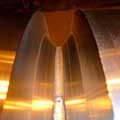
CPE have manufactured pressure vessels using A508-4N material. The vessels were part of a project which was certified to both PD5500 Category 1 and ASME VIII Division 1. The vessels are destined to be used in both Europe and America. The scope of work included material control, design, welding, post weld heat treatment, post weld machining and testing of vessels from 50mm to 100mm wall thickness.
A508-4N is the preferred material for pressure vessels for the New Generation Nuclear Plant (NGNP) programme. It is a low alloy steel for operating temperatures up to 371°C.
The characteristics of the application and material require very tightly controlled quality heat treatments, weld procedures to ASME IX and ISO15614 and carefully controlled post weld heat treatment processes.
All work was carried out at CPE’s Tamworth workshops to the satisfaction of an unnamed UK nuclear company.
CPE have added a completely new workshop to their existing facilities, to be used for production of stainless steel vessels. The new workshop is situated just across the road from their existing premises, and represents a significant expansion to the current facilities.
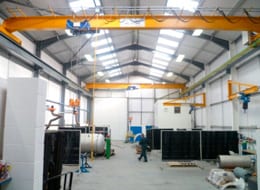
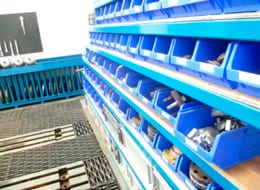
The new shop has been purpose built for the manufacture of stainless steel pressure vessels, with high doors, heavy lifting and good working height. The new building contains seven welding bays, a purpose built pressure test area, a bead blast room and meeting facilities. 5s systems are being used throughout the building, increasing productivity.


